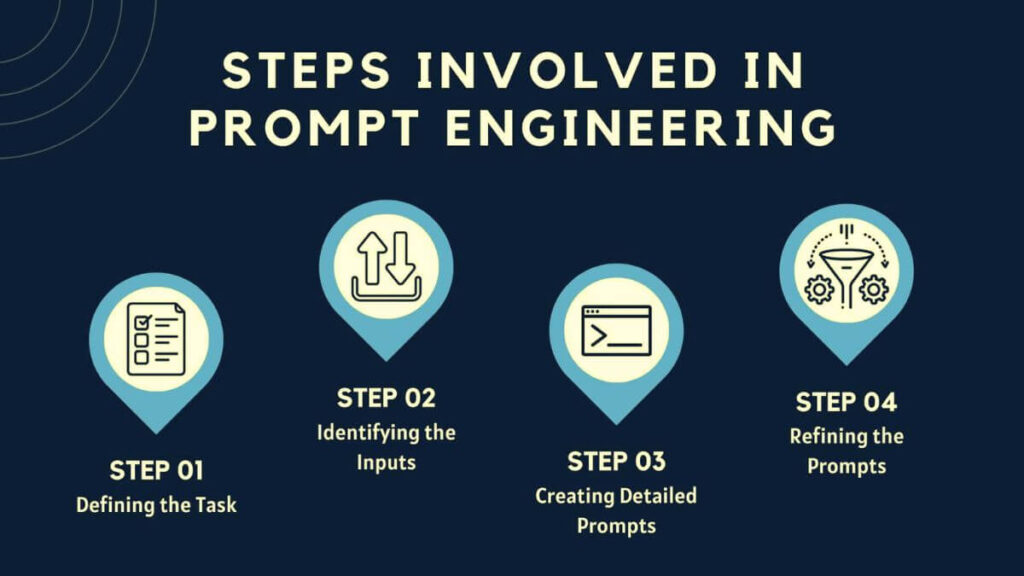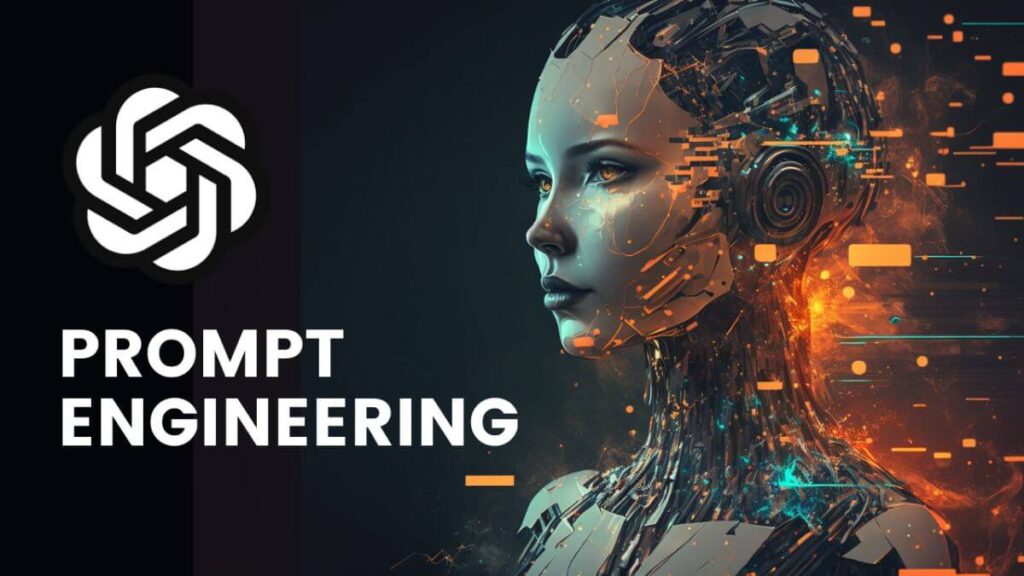Prompt engineering (PE) is a rapidly growing skill in the AI world. It’s the foundation for interacting with AI tools. Whether you’re a developer or a non-technical user, understanding prompt engineering can open new doors.
In simple terms, prompt engineering is about giving clear instructions to AI. This process improves how AI models like ChatGPT, Gemini, ClaudeAI, etc. respond to different queries. P.E. allows individuals and businesses to interact with AI more efficiently.
Many companies today use PE to improve customer service, automate tasks, and enhance decision-making.
In this blog, we will explore what prompt engineering is, why it is important, and how it can benefit you. We will also look at its various applications, the advantages it offers, and which companies are currently using this skill to optimize their AI systems. Finally, we will discuss potential career paths for those who want to specialize in prompt engineering.
What Is Prompt Engineering?
Prompt engineering refers to the process of designing and structuring inputs, known as prompts, that guide AI models to produce desired outputs. The ultimate goal is to get the most accurate and useful responses from AI. These prompts help guide the model to produce relevant results.
When you interact with AI systems like GPT-4 or Gemini, you provide it with a prompt—a specific instruction or question. The quality of the AI’s response depends heavily on how well the prompt is designed.
For example, if you ask an AI model, “What are the benefits of AI?” it may provide a general answer. However, if you ask, “What are the benefits of AI in healthcare?” you are more likely to receive a specific and useful response.
This ability to guide AI using well-constructed prompts is known as prompt engineering.
The goal of PE is to improve the interaction between humans and AI. It allows users to get more relevant, detailed, and accurate responses by providing clear and specific instructions.
This technique is becoming increasingly important as businesses and individuals use AI for a variety of tasks, including writing, customer service, and data analysis.
How does Prompt engineering work?
You start with a well-defined question or task. A well-crafted prompt helps the AI provide accurate responses. It guides the AI to understand your question or task clearly. This technique helps get better results from AI tools like chatbots or image generators.

- Understanding Prompts can be simple questions or detailed instructions. For example, asking an AI to explain a topic in a simple way is a prompt.
- Crafting Effective Prompts focuses on clarity. Use specific keywords to describe your task. For example, if you want a short answer, mention it in your prompt. If you need details, ask the AI to elaborate. The goal is to guide the AI with clear and direct instructions.
Sometimes, a prompt may not deliver the desired result. You can adjust your prompt by rephrasing it or adding more details. This helps the AI understand the task better and improves the quality of the response.
Why should you learn Prompt engineering?
Learning prompt engineering can significantly improve your interactions with AI tools. It gives you control over the output. Whether you’re writing, coding, or creating art, understanding how to guide AI effectively will enhance your productivity and creativity.
The main reason to learn prompt engineering is that it saves time. Instead of spending hours refining AI responses, a well-written prompt can do the job instantly. Additionally, this skill improves communication with AI models, making them more efficient.
Prompt engineering allows you to make AI work for your needs. It also ensures that the AI understands exactly what you’re asking. This can improve user experiences, increase efficiency, and lead to better outcomes.
Businesses that rely on AI for customer service, data analysis, and content creation will find this skill especially useful. Prompt engineering can also be helpful in everyday tasks, such as automating emails or managing schedules.
Here are several reasons why you should consider learning prompt engineering:
- Enhances AI Capabilities: Prompt engineering allows you to get the most out of AI systems. By crafting better prompts, you can ensure that the AI delivers high-quality results.
- Saves Time: Well-structured prompts help AI provide accurate information quickly. This reduces the time spent refining or correcting the AI’s responses.
- Improves Communication: Prompt engineering improves how you communicate with AI systems, making them more efficient and easier to use.
- Increases Customization: You can customize AI systems for specific tasks, making them more adaptable to your unique needs. For example, in marketing, you can tailor prompts to generate targeted campaigns.
- Boosts Problem-Solving Abilities: Prompt engineering helps solve complex problems faster by getting more precise answers from AI models.
- Cost-Effective: By improving AI performance through prompt engineering, businesses can save money on manual labor and increase operational efficiency.
Applications of Prompt Engineering
Prompt engineering is widely used across various industries and sectors. Its applications range from customer service to software development, making it a versatile and valuable skill.
Below are some of the key applications of PE.:
- Customer Support: AI-driven chatbots and virtual assistants rely on well-structured prompts. This ensures they answer customer questions clearly and efficiently.
- Content Creation: AI models like GPT-4 are used for generating articles, social media posts, and other content. Prompt engineering helps these models produce high-quality and relevant content.
- Software Development: PE. helps developers write code faster. AI tools can generate snippets of code or even solve coding challenges with the right prompts.
- Marketing and Sales: AI can help in generating targeted marketing messages and responding to customer queries. This saves time and increases customer engagement.
- Education: AI can act as a tutor, helping students learn faster. PE helps structure educational content in a way that improves learning.
- Decision-Making: Companies use AI to analyze data and make decisions. With PE, these AI models provide more accurate and useful insights.
In every field, PE can be used to get the most out of AI systems.
Benefits of Prompt Engineering
Prompt engineering offers numerous advantages, making it a valuable skill for individuals and businesses alike.
Here are some key benefits:
- Improves AI Performance: Prompt engineering helps AI systems deliver more accurate responses, improving overall performance.
- Saves Time and Effort: With clear prompts, AI models can provide the right information faster. This reduces the need for manual input or corrections.
- Enhances User Experience: Well-designed prompts result in better user interactions with AI-driven applications. This leads to higher customer satisfaction and loyalty.
- Increases Productivity: PE automates repetitive tasks, allowing workers to focus on more important tasks.
- Customizes AI for Specific Needs: By using specific prompts, you can make AI tools work for your unique business needs. This allows for better customization of AI-driven workflows.
- Reduces Errors: AI models are less likely to make mistakes when provided with clear, concise instructions. PE reduces the chances of miscommunication between AI and users.
With these benefits, it’s easy to see why prompt engineering is becoming an essential skill in the workplace.
Companies using PE
Many top companies are using prompt engineering to improve their AI capabilities. Here are some examples:
- Google: Google uses AI-driven tools to improve search results, automated services, and more. Prompt engineering helps them refine their AI models.
- OpenAI: Creator of models like GPT-4, OpenAI constantly works on improving how AI responds to human inputs.
- Microsoft: Microsoft integrates AI into its tools like Azure and Office 365. Prompt engineering helps their AI-powered solutions deliver better results.
- Amazon: AI-driven customer service bots and personalized shopping experiences are all possible with prompt engineering at Amazon.
- IBM: IBM Watson is known for using AI in healthcare and other industries. PE helps make their AI solutions more effective and accurate.
- Facebook (Meta): Meta uses AI to improve social media algorithms and provide personalized content. Prompt engineering is key to making their AI more responsive.
- Tesla: Tesla uses AI for its autonomous driving technology. Prompt engineering plays a role in refining the interactions between AI systems and human inputs.
- Salesforce: Salesforce integrates AI in its CRM tools, and PE helps improve how AI models analyze data and generate customer insights.
- Spotify: Spotify uses AI to curate personalized playlists for users. With PE, the AI models can deliver better music recommendations.
- Netflix: Netflix uses AI to recommend shows and movies based on user preferences. PE enhances the accuracy of these recommendations.
Many other companies in different sectors are also investing in prompt engineering to stay ahead in the AI race.
How to build your career in PE
Prompt engineering offers several career opportunities, especially in the AI and tech industries. If you are interested in AI, data science, or software development, PE is a great skill to add to your resume.
Here are some potential career paths:
- AI Specialist: Work on developing and improving AI models by creating effective prompts that guide the AI to perform specific tasks.
- Data Scientist: Use prompt engineering to analyze large datasets, helping AI models deliver more accurate and actionable insights.
- Content Strategist: In content creation, prompt engineering helps guide AI tools to produce high-quality, relevant content tailored to specific audiences.
- Customer Service Manager: Improve the efficiency of AI-driven customer service systems by optimizing the prompts that guide chatbots and virtual assistants.
- Software Developer: Developers can use prompt engineering to guide AI tools in writing and debugging code, streamlining the software development process.
- AI Trainer: AI trainers work on refining AI models, teaching them to understand and respond to specific prompts. This role is crucial in industries like healthcare, finance, and education.
- Marketing Specialist: Marketing professionals use AI to generate personalized content and campaigns. PE helps refine AI models to deliver more targeted messages to potential customers.
Learning this skill can open doors to new and exciting career opportunities in various fields. By mastering this skill, you can stay ahead in a world that increasingly relies on AI for problem-solving and innovation.
Whether you want to improve customer service, create better content, or automate complex tasks, PE is a valuable tool that can make AI work for you.

